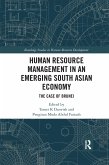Comparative International Management is a classic textbook for International Business that teaches the core concepts of International Business through a systematic comparison of management practice in countries across the world. This approach, unique to textbooks in the field, highlights cultural and behavioural themes, demonstrates the diversity of practice in global business, and allows for an exploration of globalization. Fully revised and updated, this third edition has been restructured for clarity and ease of use, with new sections covering theoretical underpinnings so that they are easy to understand.
Also new to this edition:
Coverage of emerging and contemporary issues including environment and sustainability issues; international SMEs and entrepreneurship; technology, AI, and automation; and the future of work post-pandemicPractical application sections to help readers connect theory with practiceMore coverage of government and non-profit organizationsReflective and problem-solving questions at the end of each chapter
With student- and instructor-friendly online resources such as chapter summaries, mini-case scenarios, larger case studies, and PowerPoint slides, this book is essential core reading for advanced level and postgraduate students in International Business and International Management.
Also new to this edition:
Coverage of emerging and contemporary issues including environment and sustainability issues; international SMEs and entrepreneurship; technology, AI, and automation; and the future of work post-pandemicPractical application sections to help readers connect theory with practiceMore coverage of government and non-profit organizationsReflective and problem-solving questions at the end of each chapter
With student- and instructor-friendly online resources such as chapter summaries, mini-case scenarios, larger case studies, and PowerPoint slides, this book is essential core reading for advanced level and postgraduate students in International Business and International Management.
This fresh edition of a classic is very welcome. I have used this book in my postgraduate teaching for many years. It offers deep theoretical insights in, and empirical evidence for, how culture and institutions are interlinked with the spread of 'best global practices', and why diversity persists in managing and organizing people across societal borders.
Mike Geppert
Professor of Strategic and International Management
Friedrich Schiller University Jena, Germany
The study of the multinational enterprise is an enormous field of study that has developed over the last half century and more. Summarizing and distilling this vast body of work into a single volume is no easy task. However, Noorderhaven, Koen, and Sorge have risen to the challenge and produced a magnificent overview of the field. It is broad in its coverage, touching on virtually every important research advance and pursuing the practical implications for practitioners. It is also deep, in that it summarizes decades of academic debate and discourse into a few pithy pages. I highly recommend this work to the student of both international management and international business.
Ram Mudambi
Frank M. Speakman Professor of Strategy
Fox School of Business, Temple University, USA
The third edition of this leading textbook on comparative international management has been thoroughly updated to take account of new research and changes in the international business environment. There is also a very useful new chapter integrating the different approaches considered in the book, an expanded section on changes in East Asia, particularly China, and a brief analysis of the business systems across Asia. It will be particularly useful for students on advanced undergraduate programmes and postgraduate courses, as well as scholars new to the area.
Richard Whitley
Professor emeritus of Organizational Sociology
Manchester Business School, University of Manchester, UK
Mike Geppert
Professor of Strategic and International Management
Friedrich Schiller University Jena, Germany
The study of the multinational enterprise is an enormous field of study that has developed over the last half century and more. Summarizing and distilling this vast body of work into a single volume is no easy task. However, Noorderhaven, Koen, and Sorge have risen to the challenge and produced a magnificent overview of the field. It is broad in its coverage, touching on virtually every important research advance and pursuing the practical implications for practitioners. It is also deep, in that it summarizes decades of academic debate and discourse into a few pithy pages. I highly recommend this work to the student of both international management and international business.
Ram Mudambi
Frank M. Speakman Professor of Strategy
Fox School of Business, Temple University, USA
The third edition of this leading textbook on comparative international management has been thoroughly updated to take account of new research and changes in the international business environment. There is also a very useful new chapter integrating the different approaches considered in the book, an expanded section on changes in East Asia, particularly China, and a brief analysis of the business systems across Asia. It will be particularly useful for students on advanced undergraduate programmes and postgraduate courses, as well as scholars new to the area.
Richard Whitley
Professor emeritus of Organizational Sociology
Manchester Business School, University of Manchester, UK
'For understanding management differences across cultures, there is no substitute for personal international experience. Academic literature on the subject too often resembles mediaeval scholastic disputes. The editors and authors of the present book have set themselves to inform future practitioners, for which they should be complimented.' - Geert Hofstede, Professor Emeritus, Maastricht University, The Netherlands
'This is a welcome and well integrated textbook on comparative international management, which is very much needed for degrees and courses in international business. It provides balanced arguments and evidence about the importance of universalistic and particularistic approaches to management across societal boundaries and presents a systematic framework for integrating the considerable literature on comparative management, including studies of organisations in Asia and Africa. It will be particularly useful for students on advanced undergraduate and postgraduate programmes.' - Richard Whitley, Professor of Organizational Sociology, Manchester Business School, University of Manchester, UK
'This is a welcome and well integrated textbook on comparative international management, which is very much needed for degrees and courses in international business. It provides balanced arguments and evidence about the importance of universalistic and particularistic approaches to management across societal boundaries and presents a systematic framework for integrating the considerable literature on comparative management, including studies of organisations in Asia and Africa. It will be particularly useful for students on advanced undergraduate and postgraduate programmes.' - Richard Whitley, Professor of Organizational Sociology, Manchester Business School, University of Manchester, UK








